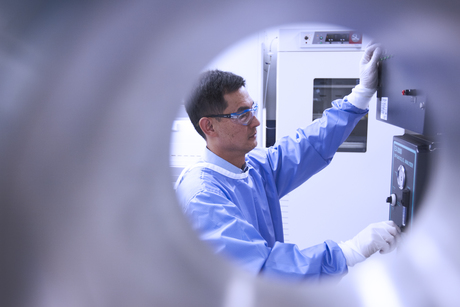Australian cancer drug licensed for $730m

A promising new cancer drug, developed by the Melbourne-based Cancer Therapeutics CRC (CTx), has been licensed to pharmaceutical company MSD (known as Merck in the US and Canada) for $730 million.
Designed to inhibit protein arginine methyltransferase 5 (PRMT5), the drug is the result of research by CTx and its partners, including CSIRO, Monash University, the Peter MacCallum Cancer Centre and the Walter and Eliza Hall Institute. Additional support was provided by the UK-based Wellcome Trust and CTx’s commercialisation partner, Cancer Research Technology (CRT), which was responsible for the licensing agreement.
The PRMT5 is involved in the epigenetic control of genes such as p53 — a gene that protects the cell against cancer-causing mutations and is faulty in nine out of 10 cancers. High levels of PRMT5 are found in mantle cell lymphoma (MCL), chronic lymphocytic leukaemia (CLL), melanoma and lung and breast cancers. As noted by Dr Tom Peat from CSIRO, the protein’s presence is also linked to poor survival rates.
Dr Peat explained that CSIRO was able to use its Recombinant Protein Production Facility to produce samples of the proteins and crystallise them for structure-based drug design. The CTx consortium was then able to develop a drug that binds to the protein, allowing it to target the cancerous cells.
In addition to applications for cancer, PRMT5 inhibitors switch on important genes in the development of blood. The new drug could therefore provide disease-modifying treatment options for patients with blood disorders like sickle cell disease and beta thalassemia.
The licence terms will see MSD take responsibility for research and development, including clinical development, and for worldwide commercialisation of products. As part of the R&D activities, MSD has entered into a research collaboration with CTx focusing on blood disorders, which MSD will fund.
CRT will meanwhile receive an upfront payment of $21 million and is eligible to receive potential payments of up to US$0.7 billion for achievement of development, regulatory and commercialisation milestones. Royalty payments will be shared between CRT, CTx and the Wellcome Trust, with the majority being returned to CTx and its Australian research partners.
“We’re delighted to have brought together the multiple parties involved in the discovery and optimisation of this multipurpose target and to have established this major licence agreement,” said Dr Phil L’Huillier, CRT’s director of business development. “The deal provides potentially significant financial returns, which CRT will invest into lifesaving cancer research, and most importantly, will hopefully bring promising new drugs to cancer patients as well as those suffering from blood disorders where there are no effective treatment options available.”
Dr Richard Seabrook, head of business development at the Wellcome Trust, added that he was “excited to see that the support from our Seeding Drug Discovery Award is playing a key role in moving the project forward”.
“We hope that in time the collaboration will lead to the development of effective new treatments for haemoglobin disorders such as sickle cell and beta thalassemia, both of which are associated with significant illness and early mortality,” Dr Seabrook said.
Melatonin helps to prevent obesity, studies suggest
In an experiment carried out in rats, chronic administration of melatonin prevented obesity to a...
Personality influences the expression of our genes
An international research team has used artificial intelligence to show that our personalities...
Pig hearts kept alive outside the body for 24 hours
A major hurdle for human heart transplantation is the limited storage time of the donor heart...







